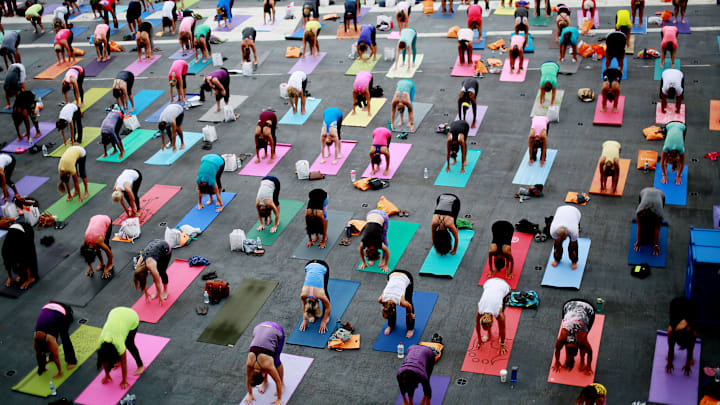Pilates: The Quiet Workout That Sneaks Up and Changes Everything

At first glance, Pilates doesn’t seem like much. Small movements. Controlled breathing. Slow repetitions that don’t even make you sweat—at least not right away. But don’t be fooled. Beneath that calm surface lies one of the most quietly powerful workouts you’ll ever try. And once it gets its hooks in you, there's no going back.
Pilates is less about punishment and more about precision. It doesn’t shout. It whispers. It asks you to pay attention—not just to how you move, but to how you feel when you do it. And that subtlety? That’s where the magic lives.
What Even Is Pilates, Really?
Let’s clear up a common misconception: Pilates is not just glorified stretching.
It’s a movement system developed in the early 20th century by Joseph Pilates, who believed physical and mental health were deeply intertwined. His method focused on controlled movement, core strength, alignment, and breath—all designed to create a body that moves efficiently and gracefully.
Today, there are two main branches: mat Pilates (just you, a mat, and gravity) and reformer Pilates (using a spring-loaded machine that looks like a cross between a medieval torture device and a minimalist bed frame). Both work muscles you didn’t know existed.
The Core of Everything
Pilates is obsessed with your core—but not just your abs. It’s your entire center: hips, lower back, obliques, pelvic floor. Strengthen that inner web, and everything else—posture, balance, stability—starts to improve.
Suddenly, you’re standing taller. Your lower back stops barking after long days. You feel connected to your body in a way that’s hard to put into words but impossible to ignore. It’s not about bulking up or burning out. It’s about rebuilding from the inside out.
The Burn You Never See Coming
The beauty (and betrayal) of Pilates is how deceptively gentle it seems. You’re lying on your back, lifting a leg. How hard could it be?
Very. It could be very hard.
Pilates emphasizes small, precise, controlled movements. The kind that isolate deep muscle layers and leave you trembling like a leaf halfway through a “simple” leg lift. It’s a slow burn that teaches patience. You can’t power your way through a session. You have to focus your way through it.
And unlike high-impact workouts that leave you drenched and gasping, Pilates often ends with a sense of calm accomplishment—like your body and brain just had a quiet conversation and actually understood each other.
The Posture Fix You Didn’t Know You Needed
If you’ve ever caught your reflection mid-slouch and winced, Pilates is your new best friend. It doesn’t just strengthen—it re-educates your muscles. Every movement is designed to realign and reawaken the parts of you that modern life (read: screens and chairs) has slowly deactivated.
After a few sessions, you’ll notice it. Sitting straighter without trying. Walking with more ease. Breathing deeper. It’s as if your body remembers how it’s supposed to work—and is a little annoyed you ever forgot.
Why It’s So Weirdly Addictive
Here’s the secret: Pilates doesn’t just change how you look. It changes how you move through the world.
It gives you access to strength you didn’t know you had. It builds body awareness that spills into everyday life—how you lift groceries, how you stand in line, how you breathe during stress. It’s subtle, yes. But it sneaks up on you.
And once you start feeling that change—from the inside out—it’s hard not to want more.
A Little Resistance Goes a Long Way
In a fitness world obsessed with intensity, competition, and before-and-after photos, Pilates is a quiet rebellion. It asks for quality over quantity. Awareness over aesthetics. It doesn’t care how fast you go. It cares how well you connect.
So if you're tired of workouts that feel like punishment, or if you're looking for something that builds you up instead of wearing you down, step onto the mat. Or the reformer. Or even just your living room floor.
Pilates isn’t loud. It doesn’t brag. But give it time, and it might just rebuild you—gracefully, quietly, and with surprising strength.